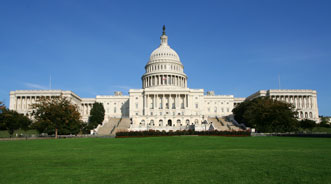Latest House Bill Aims at Curbing CFPB’s Authority

During the same week the Consumer Financial Protection Bureau “strongly urged” companies to make credit scores more readily available, a bill passed through the U.S. House aimed at limiting the authority of the bureau, which the measure’s author called, “a dangerously powerful and dangerously unaccountable agency.”
As currently constructed, Rep. Sean Duffy, a Wisconsin Republican who authored H.R. 3193 — known as the Consumer Financial Freedom and Washington Accountability Act — indicated the bill would accomplish four objectives, including:
— Replaces the single, “unaccountable” CFPB director with an “accountable,” five-member commission appointed by the president and confirmed by the Senate to ensure that a diversity of viewpoints inform the CFPB’s regulatory and enforcement agenda, and to conform the CFPB’s governance to that of other federal agencies charged with consumer or investor protection.
— Subjects the CFPB to the regular appropriations process and makes the CFPB a stand-alone independent agency rather than a bureau within the Federal Reserve System.
— Prohibits the CFPB from using a consumer’s private, personal financial information without the consumer’s knowledge and consent. The CFPB is currently engaged in a massive, multi-million dollar data collection effort of consumers’ financial information.
— Prevents the CFPB from undermining the safety and soundness of U.S. financial institutions through regulatory overreach.
— Sets the basic rates of pay for CFPB employees in accordance with the General Services (GS) scale.
“This is a bill about accountability and transparency,” Duffy said. “CFPB director Richard Cordray claims that in order for the agency to do their job, they must monitor 80 percent of all credit cards in circulation, or nearly 1 billion credit cards. One provision in this bill would require the CFPB to first ask the American people’s permission before accessing their personal information.
“If you are here to protect the consumer, why don't you ask the consumer for permission and consent to take their information? “This is the right thing to do. Let’s empower Congress and the American people. Let’s reform the CFPB and actually make it work,” Duffy went on to say.
Duffy’s House colleague, Rep. Jeb Hensarling, a fellow Republican from Texas, cheered the developments associated with H.R. 3193. Hensarling also is the House Financial Services Committee chairman.
“We are now into the sixth year of the Obama administration and probably the two most common comments I hear from my constituents are, ‘I just can’t make ends meet in this economy,' and ‘Washington has become arrogant, unaccountable, and out of touch,’” Hensarling said last week. “And at the apex of these sentiments lies the newly minted, Dodd-Frank government agency known as the CFPB. Although many have yet to hear of it, the CFPB is perhaps the single most powerful and least accountable Federal agency in all of Washington.
“When it comes our credit cards, our auto loans, our mortgages, the CFPB has unbridled, discretionary power not only to make them less available and more expensive, but to absolutely take them away,” he continued.
“The Consumer Financial Freedom and Washington Accountability Act, whose primary author, Mr. Duffy of Wisconsin has done excellent work along with many other members of our committee, is a package of common-sense reforms designed to make the CFPB more accountable and more transparent to the American people,” Hensarling went on to say.
Along with approval from House Republicans, the bill was cheered by the National Automobile Dealers Association. In a letter to House members, NADA vice president of legislative affairs Ivette Rivera reiterated the association’s issue with the CFPB’s guidance for indirect auto lending.
“The CFPB has not studied the impact of its indirect auto finance guidance on consumers despite the fact it is likely to increase costs for consumers. Specifically, the bureau recently acknowledged that it never studied how eliminating a dealer’s ability to discount credit would affect the cost of credit paid by consumers,” Rivera said.
“According to Fitch Ratings, the CFPB’s drive to eliminate or severely limit ‘meet or beat’ financing offered by auto dealers ‘will likely raise lender regulatory costs in 2014.’ Higher regulatory costs would result in higher credit costs for consumers. As recognized by a bipartisan group of House and Senate members, lower income consumers could be priced entirely out of the credit market because of these new costs,” she continued.
If the CFPB, like other agencies, were subject to customary congressional oversight, Rivera claimed it is doubtful the bureau would have attempted to fundamentally change and regulate the $783 billion auto loan market via guidance without three components, including
— Prior public comment or hearing
— Answering direct and specific questions by Congress for nearly a year
— First assessing the impact of its guidance on consumers
“Oversight by Congress of the executive branch is an integral part of the checks and balances of our democratic system. On behalf of America’s franchised auto dealers, we urge Congress to pass H.R. 3193 to provide that needed oversight and accountability,” Rivera said.

 View The Latest Edition
View The Latest Edition

